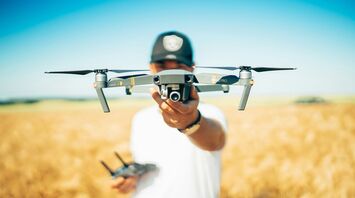Japan's Leap Towards Futuristic Pharmaceutical Delivery: A Drone Port Demonstration

In the bustling cityscape of Tokyo, a groundbreaking demonstration was conducted from February 13 to February 22, 2024, marking a significant leap towards the future of pharmaceutical delivery. Spearheaded by a consortium of key players including KDDI CORPORATION, KDDI SmartDrone Corporation, Japan Airlines Co., Ltd., East Japan Railway Company, Weathernews Inc., and Mediceo Corporation, this initiative tested the viability of drone ports for efficient and safe pharmaceutical transport.
The demonstration, a part of the "Demonstration Project for the Promotion of Drone Logistics Service Implementation in Tokyo" by the Tokyo Metropolitan Government, aims to pave the way for the widespread adoption of drone logistics services. It builds on Japan's first-ever Level 4 pharmaceutical delivery via drone in December 2023, taking a significant step further by integrating drone ports to streamline the delivery process.
At the heart of this trial was the implementation of a drone port adjacent to a medical facility in Koto-ku, Tokyo. This setup was designed to assess not only the safe handling of pharmaceuticals but also to explore ways to minimize the labor traditionally required for delivery management. The project leveraged an advanced 'ACSL-PF2' drone, manufactured by ACSL, and a drone port developed by IHI Transport Machinery, demonstrating the seamless integration of cutting-edge technology with logistical needs.
Over the course of the demonstration, approximately 40 hospital personnel, including notable figures such as Dr. Goto from St. Luke's International Hospital and Dr. Kashiwabara from SHOWA University Koto Toyosu Hospital, had firsthand experiences with the drone port delivery system. The feedback was overwhelmingly positive, with many expressing a desire for compact drone ports that could facilitate not just the receipt but also the dispatch of pharmaceuticals from hospitals, potentially revolutionizing the delivery process, especially during night-time and low-staffing periods.
Key takeaways from the demonstration highlighted the need for drone ports of suitable sizes for various installation sites, seamless system integration between drone ports and drones, and the demand for drones capable of precise landings and larger payload capacities. These insights will be instrumental in refining the approach towards realizing a drone-based pharmaceutical delivery service in Tokyo and beyond.
Looking ahead, the consortium plans to address the technical, operational, and business challenges uncovered during this demonstration. The ultimate goal is a safe, effective, and economically viable drone-based pharmaceutical delivery service that could revolutionize logistics, particularly in urban settings. With further demonstrations and the potential long-term implementation of Level 4 drone flights in Tokyo planned for FY2024, the future of drone-assisted urban development and logistic services looks promising, poised to redefine the landscape of pharmaceutical delivery.



















